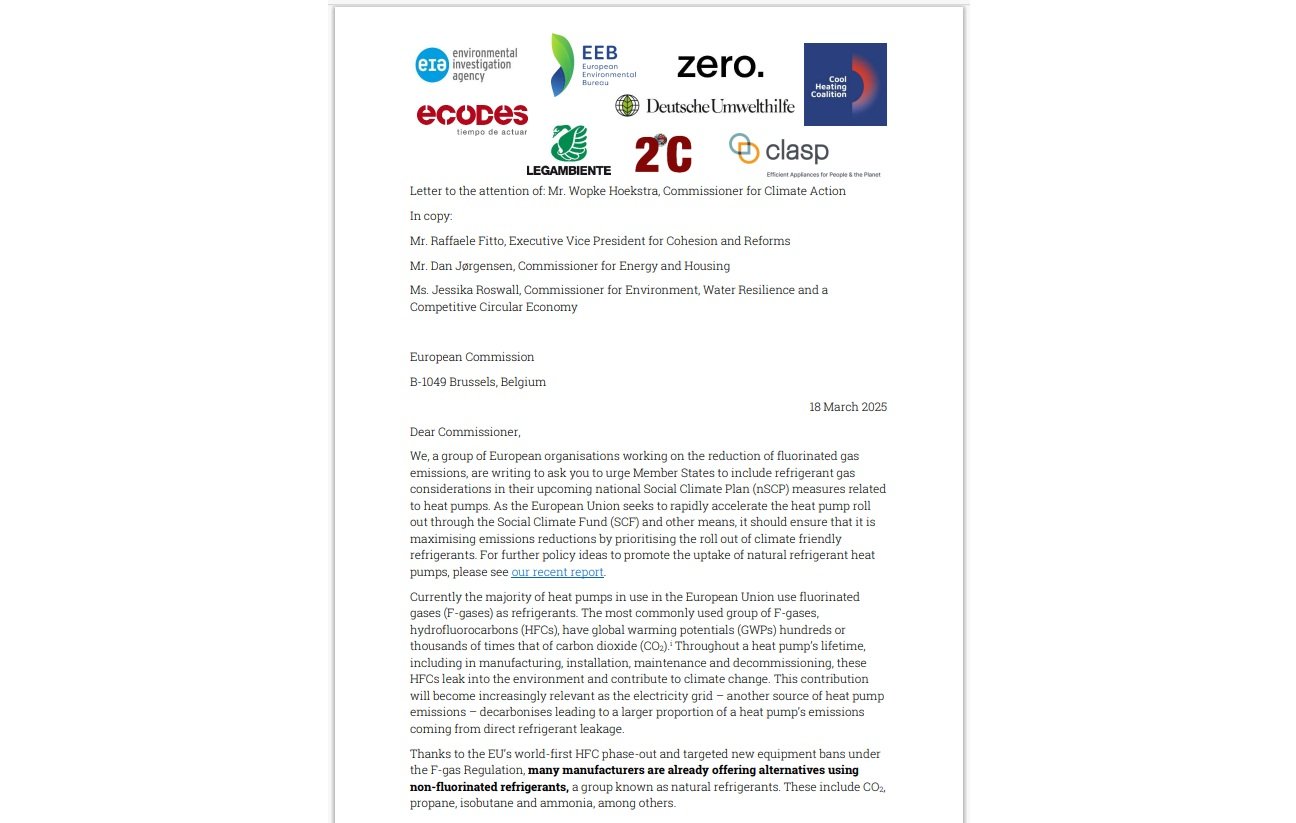CLASP, together with eight other environmental organizations,
has called on the European Commission to promote natural refrigerant heat pumps as part of the European Union’s climate strategy. The joint appeal aligns with the deployment of the €86 billion Social Climate Fund and the EU’s push for accelerated heat pump installation.
Policy Recommendations for Heat Pump Funding
The letter submitted by the coalition outlines three main policy recommendations. First, the EU should prioritize natural refrigerant-based systems, citing the long-term climate risks of hydrofluorocarbon (HFC) refrigerants, which have significantly higher global warming potential (GWP). Second, Member States should offer financial incentives specifically for heat pumps using natural refrigerants. Germany currently provides an additional 5% grant for such installations.
Third, the signatories advocate for a clear timeline to phase out public funding for HFC-based heat pumps. The letter suggests defining a cut-off year after which F-gas systems would be ineligible for subsidies. Germany has already set 2028 as the deadline after which only natural refrigerant heat pumps will be eligible for state support.
Environmental and Economic Impact
According to the group, continuing to fund heat pumps that rely on HFCs could undermine the EU’s goal of reaching net zero emissions by 2050. Since heat pumps typically remain in service for decades, today’s refrigerant choices will have long-lasting climate implications.
Evidence from Germany’s incentive program shows that natural refrigerant heat pumps tend to be more energy-efficient across all temperature ranges. This results in lower energy use and reduced operational costs for consumers. Their capability to perform efficiently at high temperatures also makes them suitable for replacing traditional boilers in retrofitting scenarios.
"Germany’s funding model proves that targeted incentives can drive the market toward climate-friendly technologies,” said Paolo Falcioni, Executive Director at CLASP. “The EU now has an opportunity to lead globally by aligning funding policies with long-term climate goals."
Next Steps
CLASP is conducting further research into the adoption of natural refrigerant heat pumps and the challenges to scaling them in both the EU and the UK. The findings are expected to inform future policy decisions and support broader market transformation efforts.
More information on the topic can be found
here.
